If you’re trying to figure out why so many conservatives despise critical race theory, here’s some historical context you should remember:
White conservatives oppose critical race theory – only when it’s applied to Black people.
But many have no problem adopting some of CRT’s language and core insights when complaining that contemporary America discriminates against White people.
This is the audacious double standard that’s often overlooked in the current debate over critical race theory. Many White conservatives roll their eyes when Black people claim that systemic racism exists, that racism is baked into the nation’s policies and legal system, and that it can’t be reduced to individual prejudice – all key CRT concepts.
Yet White conservatives have steadily built a legal and political movement that claims White people are the primary victims of covert forms of racism embedded in American institutions such as religion, education, and throughout popular culture.
There’s a name for this rhetorical sleight of hand, which insists that systemic racism exists for White Americans but not for people of color. Ta-Nehisi Coates, the renowned author and essayist, calls it “frame-flipping.”
Read more from John Blake:
Coates says that while overt, ugly acts of bigotry attract the most attention, the most potent component of racism is “positioning the bigot as the actual victim.”
“So the gay do not simply want to marry, they want to convert our children into sin,” he wrote. “The Jews do not merely want to be left in peace, they actually are plotting world take-over. And the blacks are not actually victims of American power, but beneficiaries of the war against hard-working whites. This is a respectable, more sensible, bigotry, one that does not seek to name-call, preferring instead ‘to’ change the subject and strawman.”
The recent debate over CRT is the latest variation of frame-flipping. But conservatives have used similar tactics to thwart the feminist movement and to notch victories in the culture wars on American campuses.
CRT is a complex subject that can easily be mischaracterized
Critical race theory is a perfect candidate for the latest version of frame-flipping because so many people do not know what it is – including some conservatives who condemn it.
Critical race theory emerged in the 1970s as legal scholars and activists sought to figure out why racial inequality persisted despite the passage of landmark civil rights laws in the 1960s, which penalized the most blatant forms of discrimination. They concluded that racism had mutated and embedded itself in policies and institutions, such as housing and the justice system.
These modern forms of racism are what some call “racism without racists.” They are often hardwired into institutions, and can’t be traced back to a White person being overtly racist. For example, a critical race theorist might point to an actual 2011 case of a lender caught charging Black and Latino customers higher fees than White applicants with similar credit histories.
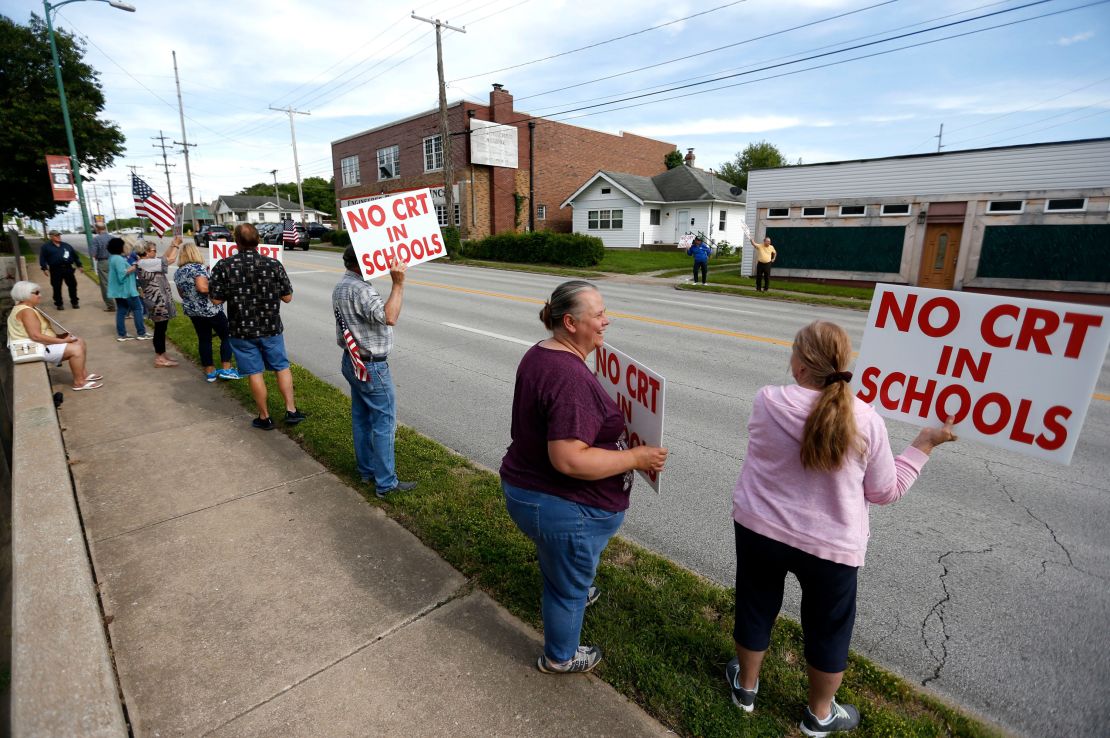
Many critics, though, ignore how CRT exposes how racism persists in the contemporary world. They say critical race theory “poisons our discussion of race” by suggesting that those who question CRT are automatically assumed to oppose fighting racism. They also argue it teaches White students to be ashamed of their color and country.
Conservative lawmakers have now passed laws in at least six states to ban what they describe as the teaching of critical race theory in public schools, with similar legislation being proposed in at least a dozen more. One commentator called this campaign the “most far-reaching assault on academic freedom since the McCarthy era in the 1950s.”
But it is something more. It is a textbook example of conservative hypocrisy.
Critical race theory opponents borrow from the anti-racists they denounce
Conservatives accuse critical race theorists of “planting hatred in the minds of the next generation” and being obsessed with skin color.
Yet many continue to rally behind a former President who is widely perceived to have spread hatred against Americans of color with such remarks as telling four nonwhite Democratic congresswomen to “go back” to the crime-infested places they came from and rose to political prominence partly based on a racist birther conspiracy theory that reflected his obsession with the first Black President of the US.
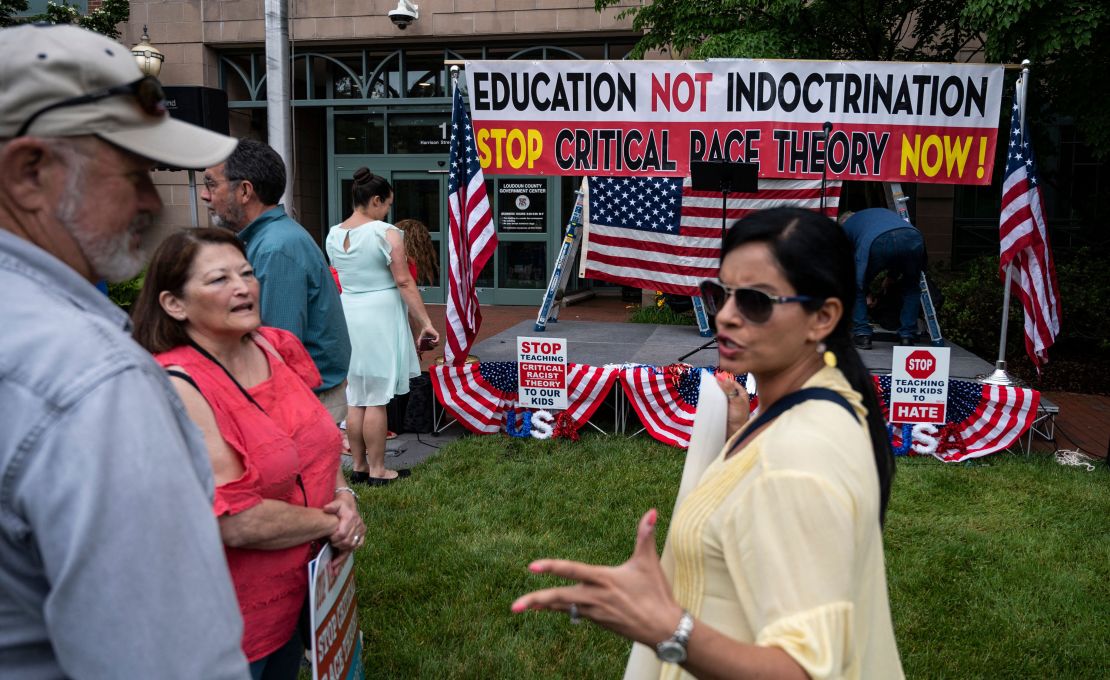
Conservatives admonish critical race theorists for saying racism transcends individual prejudice and is embedded in American institutions.
Yet they insist that White Americans are the victims of bias in such institutions as mainstream media, law schools and in corporate America, where some now say that White conservative men can’t get ahead.
Conservatives say critical race theory teaches “that Blacks should forever be regarded as helpless victims,” and that “America is not a racist country.”
Yet they also warn of pervasive “anti-White mania” in America. A large number of Whites even say they face more discrimination than Black people, while a majority of White evangelicals say Christians face more discrimination than Muslims.
Some conservatives deny White privilege but believe in ‘Black privilege’
The battle over critical race theory is actually the latest outbreak of an older phenomenon: More White Americans in recent years have come to see themselves as a racially oppressed majority group.
This belief is reflected in how casually many White people use the language of racial persecution to describe their state in contemporary America, a fear that Trump has stoked for years.
Numerous studies show that Blacks lag behind Whites in many socioeconomic categories. White people make up the bulk of the country’s CEOs, billionaires and political leaders. There is no widely cited study showing that job applicants with a White-sounding name on their resume like Emily or Greg are 33% less likely to get called back for a job interview than a Jamal or Lakisha.
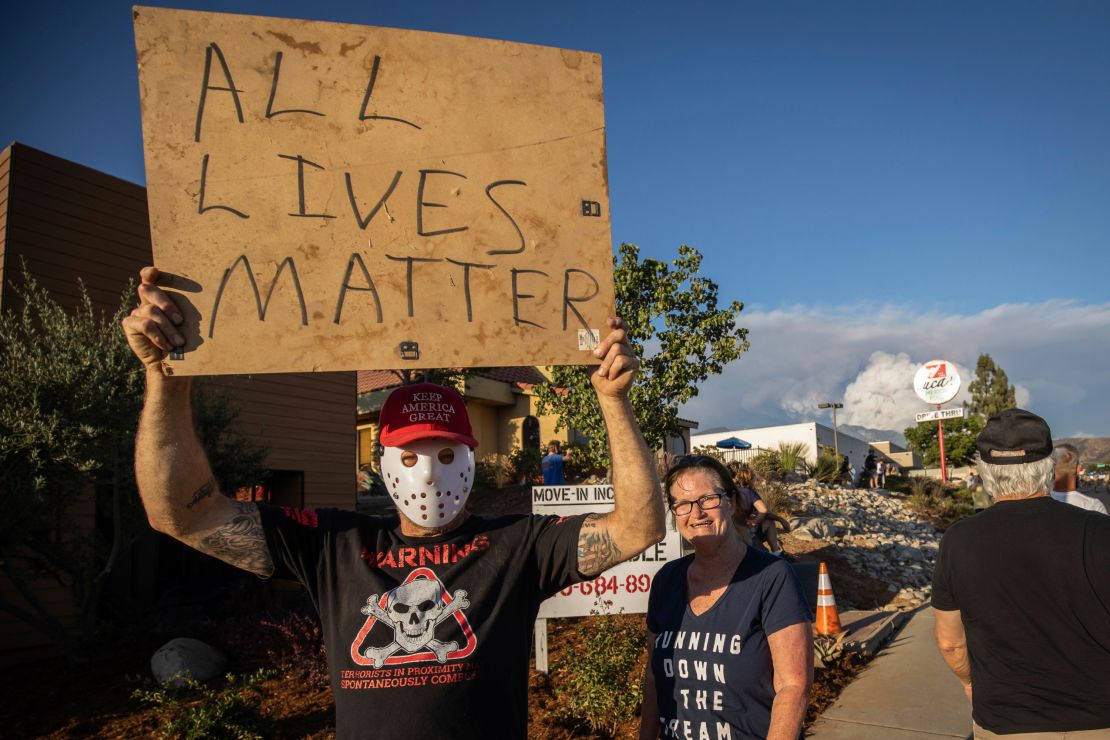
Still, many White people talk today as if they are an embattled racial minority. Powerful White men lament they are increasingly “being silenced by ‘woke” culture.” Conservative politicians describe critical race theory as being as racist as “Klansmen in White sheets” and complain that Democratic voting proposals represent “Jim Crow 2.0.”
One conservative leader called it a “monstrous evil” that would enable people of color to rise up and use the “whip handle” on their White neighbors.
White privilege is bogus, conservative commentators say, but “Black privilege,” where Blacks get “automatic victim status’ that makes it easier for them to land affirmative action slots, is a real problem.
Critics don’t accept CRT’s premise that systemic racism persists in contemporary America.
Like critical race theorists, though, many see racism as a subtle and adaptable force woven into contemporary American institutions – except they believe these racist forces are arrayed against White people.
Opponents of critical race theory follow a well-worn script
This new language of White persecution is no accident. It reflects in part real sentiments from White Americans who are anxious about demographic changes in their country. But it also reflects a strategy.
Much of this can be traced to conservative activist Christopher Rufo, who has vowed to lead a “one-man war” against critical race theory and has been open about his desire to turn CRT into a negative term.
Rufo wrote on his Twitter feed:
“We have successfully frozen their brand—”critical race theory”—into the public conversation and are steadily driving up negative perceptions. We will eventually turn it toxic, as we put all of the various cultural insanities under that brand category.”
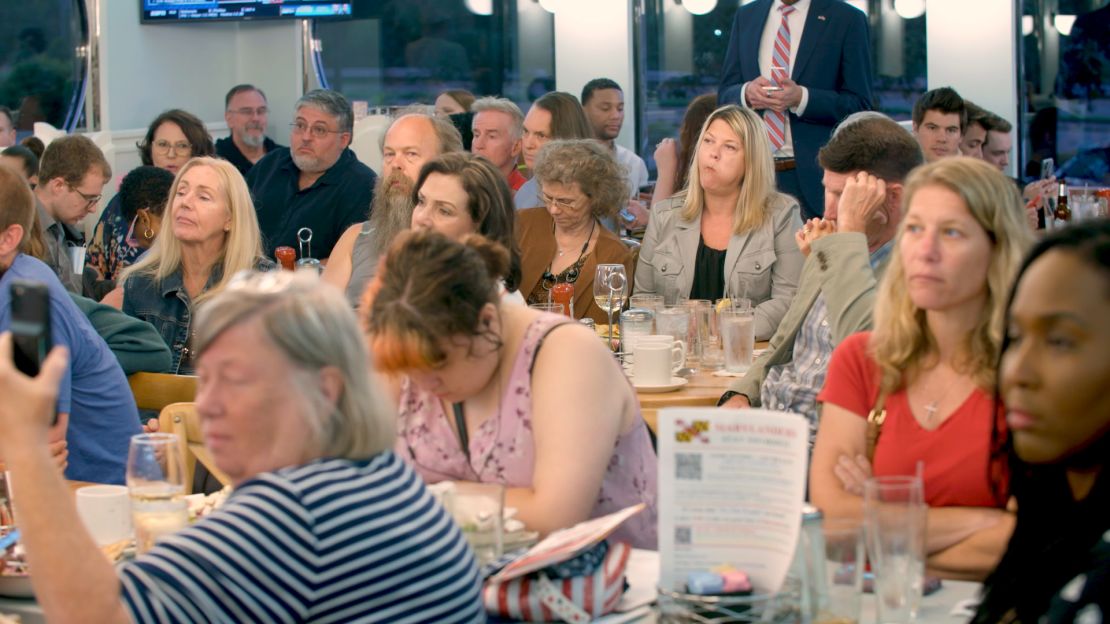
Bending left-leaning language and concepts to attack progressive reforms is something conservatives have been doing for centuries, political theorist Corey Robin argues in “The Reactionary Mind: Conservatism from Edmund Burke to Donald Trump.”
In his book, Robin looked at how conservative movements have traditionally specialized in absorbing “the ideas and tactics of the very revolution or reform it opposes.”
Robin cited another cultural war battle that grabbed a lot of headlines not too long ago – the battle over political correctness on college campuses.
He says conservative leaders deftly advised conservative college students to use the language of the left to take on campus liberals. They accused colleges of lacking intellectual “diversity,” said conservatives were “underrepresented” and that schools should be more “inclusive” of right-leaning students.
Robin also pointed to another conservative movement that borrowed the language of the left in the 1970s to defeat a progressive dream: The Equal Rights Amendment, an update to the Constitution that would have guaranteed equal rights to women.
After the feminist movement of the 1960s, ratification for the Equal Rights Amendment seemed assured by the early 1970s. But Phyllis Schlafly, a conservative activist, led the successful campaign to torpedo the ERA movement by shrewdly using the language of the left.
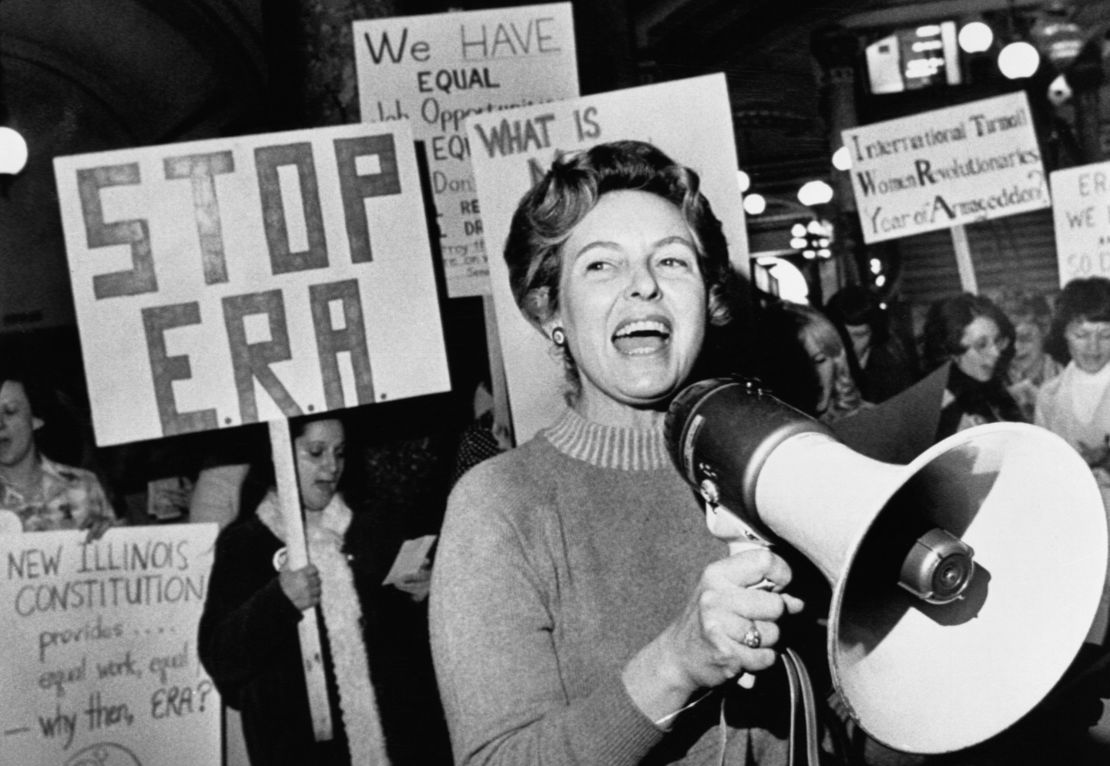
She argued that the ERA would be “a takeaway of women’s rights,” said she was defending “the real rights of women” and added, “a woman should have the right to be in the home as a wife and mother.”
Schlafly used the language of human rights to “put women back into the home,” Robin noted. He says Schlafly’s semantical maneuver was a common tactic of conservative movements, which, “without directly engaging the progressive argument,” absorb “the deeper categories and idioms of the left.”
Rush Limbaugh, the late conservative talk-show host, used the same rhetorical trick. He used the language of the civil rights movement to attack progressives. He once argued that conservatives are an “oppressed minority” in need of a “civil rights movement” because its members willingly sit in the “back of the bus” and were “afraid of the fire hoses and the dogs.”
Some opponents of critical race theory are using the same ploy. They won’t directly confront what critical race theorists actually say about incidents like George Floyd’s murder and what it implied about the persistence of White supremacy in America. They simply absorb the language of critical race theorists to deflect and discourage any deeper discussions of systemic racism.
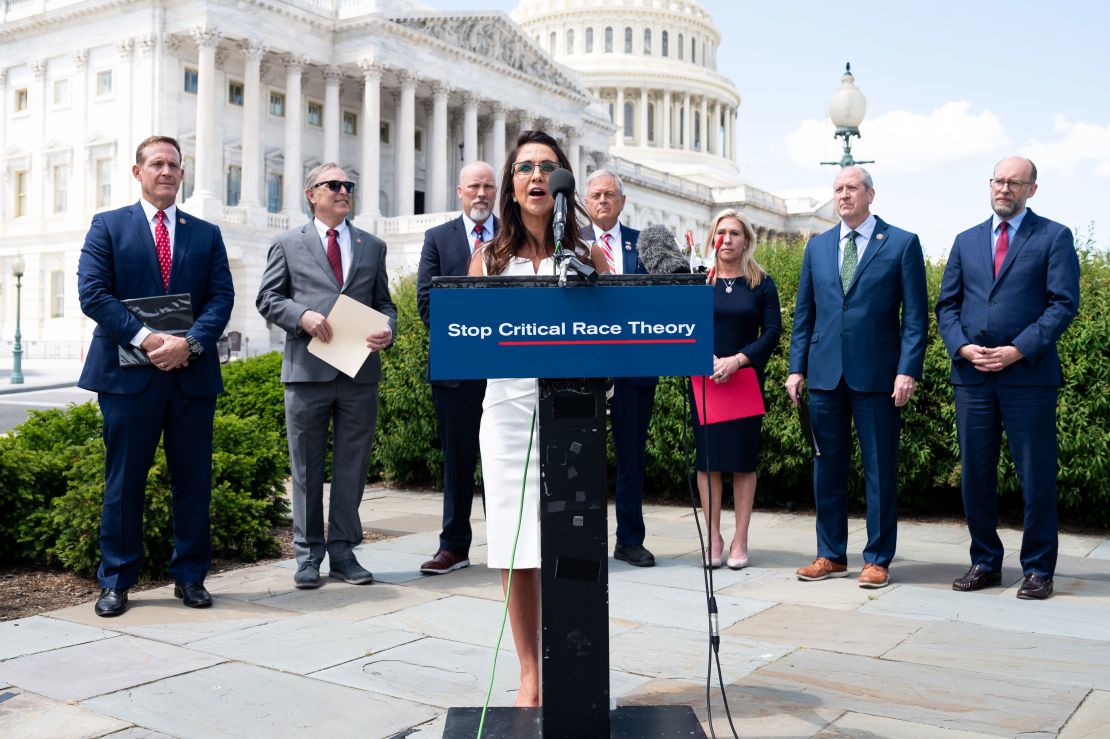
This was the point echoed by Sam Hoadley-Brill, a fellow at the African American Policy Forum, which is headed by the scholar Kimberlé Crenshaw, one of the founding scholars of CRT. He wrote in a recent essay:
“Today’s attacks on critical race theory aren’t meant to rebut its main arguments. They’re meant to paint it with such broad brushstrokes that any basic effort to reckon with the causes and impact of racism in our society can be demonized and dismissed.”
There is a legitimate debate to be had over critical race theory. Does it accurately reflect US history? Does it really teach hatred? And who gets to define racism: its perpetrators, or its victims?
But there is a segment of White conservative America that is not interested in debate. As they dismiss CRT as bogus – while employing its concepts and language to describe their own perceived racial oppression – the message they’re sending to Black Americans, other people of color and their White allies is clear:
“Critical race theory for me – but not for thee.”

